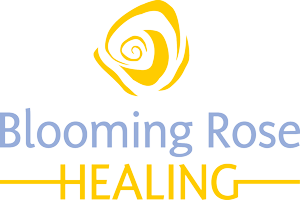The Way Forward: Healing Divisiness By Connecting Within
The point in history at which we stand is full of promise and danger. The world will either move forward toward unity and widely shared prosperity - or it will move apart. —Franklin D. Roosevelt
In a world that feels increasingly divided, many of us are struggling to find harmony within ourselves. If you’re like me, you may be asking: Why am I feeling so much panic, fear, and disconnection? What is my soul trying to teach me here?
I believe that the divisiveness we see in the world today is more than just political—it’s actually a reflection of the internal fragmentation we feel in our own lives. When we witness clashing ideologies, polarized news sources, and heated debates that split communities, it’s easy to dismiss it as something “out there.” But the turmoil we see externally is a mirror of what we carry within ourselves.
When we feel at odds with ourselves and others, it’s because we’re cut off from our soul’s guidance. We all want a quick fix. We all believe we deserve to feel good. The truth is that it’s not about “feeling better,” but becoming better at feeling. This means embracing all of our emotions, even the uncomfortable ones, as teachers and guides.
Many of us have learned to ignore our gut feelings, but our bodies often have wisdom our minds overlook. By paying attention to how certain situations or decisions make us feel physically—whether it’s tension, ease, or excitement—we can begin to trust our inner guidance.
Sometimes this leads us into some serious self-examination, and that, in turn, can mean standing apart from the crowd, breaking away from norms, and maybe even going against the beliefs of family and community. In a time of strong, polarized beliefs, reconnecting with ourselves requires courage.
This is also where intuition steps in. With the help of the breath, we can remain present and grounded and start to uncover ways we are divided against ourselves.
We might ask:
Where is my power? Is it outside of me, shaped by others’ opinions, or within me?
Am I criticizing myself unnecessarily, or comparing myself unfavorably to others?
Am I pining for a different, better, or younger version of myself?
Am I allowing myself to be vulnerable, or am I putting on a tough face?
Am I surrendering to what is, or resisting it?
As we practice this self-inquiry, we can begin to see where we’ve let ourselves get swept up in external influences instead of trusting our inner guidance. And as we reclaim our own power, we become better able to weather the inevitable cultural and political storms around us. Hurricanes Helene and Milton taught us that we can’t control outer events, but when it comes to our internal storms, we can learn to control our reactions.
Yet, to truly understand who we are, we must foster a dialogue between our inner and outer worlds, much like the continuous exchange in a deep friendship or marriage. If we are not willing to engage in this inner dance, how can we authentically connect in our relationships with others? This Sacred Dance is a union—a conversation within our breath. Our relationship with the world becomes a powerful messenger, but are we truly ready to confront our deeper, shadowed selves? If we ignore that inner dialogue, we miss out on a vital relationship with ourselves, which limits our capacity to fully engage in family, partnerships, friendships, and even marriages. These external connections, too, suffer.
Many of us have exhausted conversation in our relationships because we have stopped nurturing our individuality. By focusing on our own growth, we cultivate a richer conversation within ourselves. To enrich my world, I nurture my inner light, my Sacred Marriage, my Divinity, Love, and Light. I breathe and know it is safe to discover who I am.
In a world that too often feels divided, we have the power to find unity within ourselves. By reconnecting with our intuition, we not only cultivate a sense of personal peace but also contribute to a greater collective wholeness.
These pains you feel are messengers. Listen to them. —Rumi

